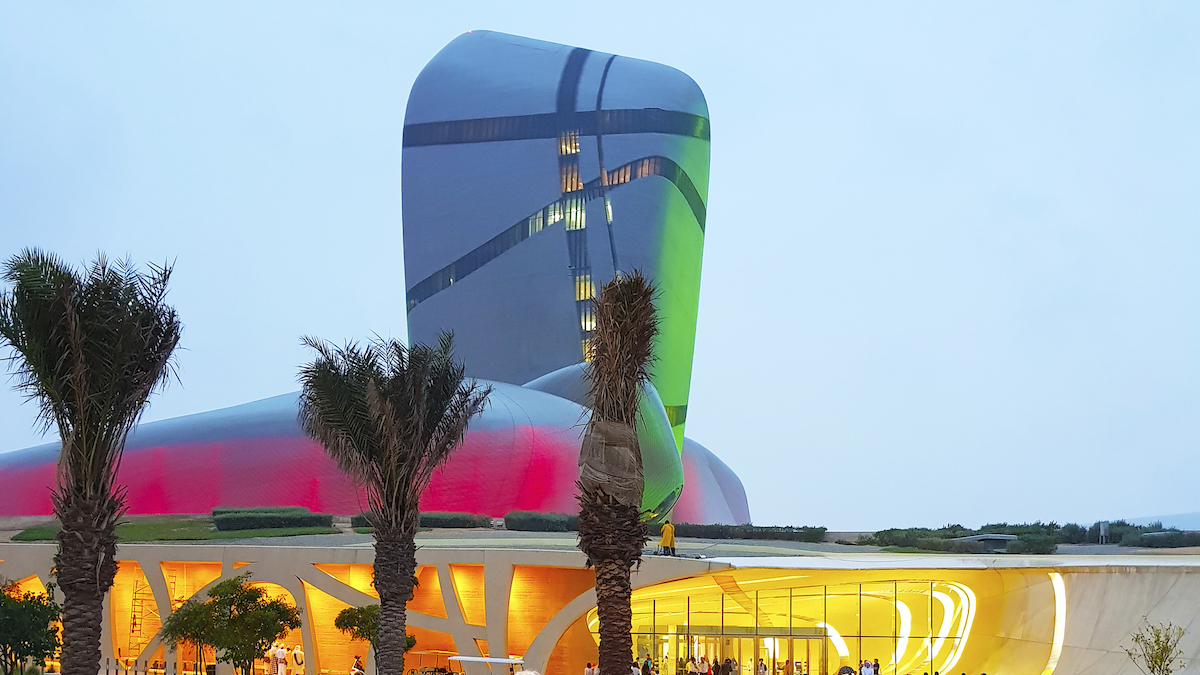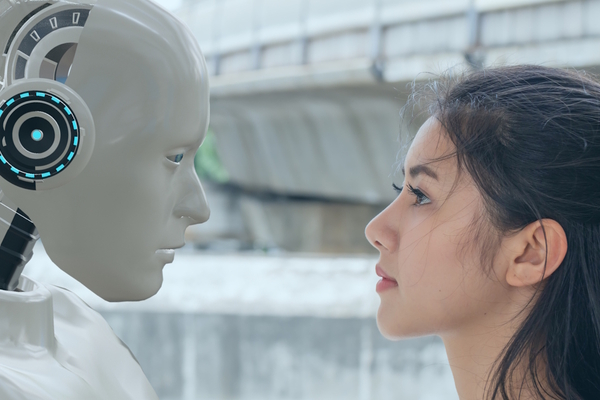From dystopia to utopia: Saudi Arabia’s changing cultural landscape-June 2020

The world has been turned upside down by the Covid-19 pandemic. In this dystopian environment, the effects of Covid-19 on art and cultural activities have been as severe as on commerce and community life. Social distancing requirements have impacted our ability to attend live performances and exhibitions. The income of artists has plummeted, and even large cultural institutions are under threat as revenues disappear.
And yet, today’s scenario is also an opportunity for change. We have the chance to rebuild the role of art and culture in society, and reimagine the ways in which artists and their audiences interact. It may sound counter-intuitive, but it is possible that today’s dystopia could lead to a future utopia.
The challenges that the coronavirus presents to art and culture in the Arab world were explored at an online debate organised by UNESCO and Ithra, the King Abdulaziz Center for World Culture, in Saudi Arabia on 18 June, as part of the ResiliArt movement. The debate, which featured an international panel of artists, academics and curators, explored the impact of the current health crisis on the creative economy, and how it is affecting artists, audiences, and the institutions in the private and public sector that support the culture sector.
The creative economy has been changed dramatically. And while it is likely that some things will revert back to what they were before the crisis, others will be changed forever. So what will art and culture look like after the pandemic? And how close to a utopia will this new normal be?
The role of art
Art is important at any time, as a source of happiness. It is particularly important in a time of crisis, when it can increase social cohesion and raise morale, providing a safe space for people to forget present-day concerns. “At times of confinement”, the Lebanese artist Akram Zaatari said during the debate, “art is a saviour”.
Art supports economic development as well, and not just because it attracts tourism. Education, especially at the primary level, needs to include arts and culture as well as science and maths. Today, business and engineering do not need people with calculating skills that can compete with computers. They need people who are innovative, creative problem-solvers, people who can communicate and empathise with others. These are skills that an education in the arts and culture can deliver.
The benefits of crisis
At a very practical level, the health crisis has pummelled the world of art. Institutional collectors have been prevented from attending art fairs. Academics have been unable to travel to see cultural artefacts in their original locations. Artists have been confined to their homes and prevented from deriving inspiration from the wider world.
The effect on people working in the arts has been profound, but not purely negative. Sheikha Hala Al Khalifa, DG of the Bahrain Authority for Culture and Antiquities, explained in the debate that she now has time to think, to reflect on her work, to develop new messages.
And artists, forced to do less, have been able to focus on the future and on new ideas. Perhaps most importantly, as they are forced to remain local, artists have been made to look more closely at their own heritage and the life circumstances that have formed them.
The crisis has created new opportunities for the conception of art. But it has also created new ways of sharing it. “Thank you for the digital age”, as Saudi artist Ahmed Mater put it. Digital technology brings many advantages. Art, after all, needs an interface between the artist and the audience. If audiences cannot travel to see art, then they can still experience it online.
Paradoxically, this means that art can be experienced by a wider audience: people who would not have ventured into galleries, and people who were unable to travel to where art is located. It also means, when social media is used, that artists can build a direct connection with individual members of their audience.
There could be a beneficial effect on the funding of art as well. Dr Nada Shabout of the University of North Texas suggested that the money saved from attending and collaborating with large international festivals and exhibitions could be redirected into supporting artists.
There is another benefit too. The virtual world provides a safe space for young and aspiring artists to experiment in less formal and judgemental surroundings. Digital technology could well lead to a flowering of artistic endeavour.
Of course, one cannot ignore the importance of the analogue world for experiencing art. Linda Komaroff of the Los Angeles County Museum of Art emphasised that there is no substitute for meeting face to face, for appreciating live performance, paintings, and three-dimensional sculpture in person.
When the pandemic has receded, institutions such as museums and galleries will still be there to welcome audiences. But they may be different, subtly improved. With fewer people inside, viewing artworks will be more comfortable. And in an effort to reduce crowing around the most popular exhibits, people will be encouraged to visit less well-known rooms, leading inevitably to audiences discovering new things.
Achieving utopia?
What needs to be done to achieve, if not an actual utopia for the cultural sector, at least a better, more nurturing environment for it? It’s critical that all parts of the industry – artists, institutions, academia – work together with the common aim of improving the creation and delivery of art and the opportunities that people have to explore art. Among artists there is much that the older generation can offer to new artists in terms of advice and support. Institutions can promote art that is more democratic, less hierarchical.
The localisation of art is another enormous opportunity. Local artists can focus on their local heritage and speak to local audiences. If they do this, there is no reason that international audiences cannot also be reached through the medium of digital technology. But the art created will be more genuine, more credible and at the same time more sustainable.
There should be confidence that this can be achieved. After all, the artistic, cultural and scientific heritage of the Arab world is as powerful as that from any other. The recent exhibition at the British Museum, Inspired by the East, is evidence of this. And the influence of Arab culture is still felt globally today, with festivals in major cities including Milan, Liverpool and Atlanta.
Linda Egerton, the debate’s moderator, summed up the evening using the words of Oscar Wilde: “A map of the world that does not include Utopia is not worth even glancing at, for it leaves out the one country at which Humanity is always landing.”
To learn more about art and culture in the Kingdom of Saudi Arabia, visit the Ithra website. The Ithra debate: From dystopia to utopia Saudi Arabia’s changing cultural landscape was part of UNESCO’s ResliArt movement and was designed to address Covid-19’s impact on cultural communities from an Arab perspective. Chaired by the Dubai- based writer and curator Laura Edgerton, the debate’s panel included: Sheikha Hala bint Mohammed Al Khalifa, Director General, Culture and Arts at the Bahrain Authority for Culture and Antiquities; Dr Ahmed Mater, an artist from Saudi Arabia; Dr Linda Komaroff, Department Head of Arts of the Middle East, Los Angeles County Museum of Art (LACMA); Akram Zaatari, an artist from Lebanon; and Dr Nada Shabout, professor of Art History and the Director of the Contemporary Arab and Muslim Cultural Studies Initiative (CAMCSI) at the University of North Texas
To learn more about art and culture in the Kingdom of Saudi Arabia, visit the Ithra website. The Ithra debate: From dystopia to utopia Saudi Arabia’s changing cultural landscape was part of UNESCO’s ResliArt movement and was designed to address Covid-19’s impact on cultural communities from an Arab perspective. Chaired by the Dubai- based writer and curator Laura Edgerton, the debate’s panel included: Sheikha Hala bint Mohammed Al Khalifa, Director General, Culture and Arts at the Bahrain Authority for Culture and Antiquities; Dr Ahmed Mater, an artist from Saudi Arabia; Dr Linda Komaroff, Department Head of Arts of the Middle East, Los Angeles County Museum of Art (LACMA); Akram Zaatari, an artist from Lebanon; and Dr Nada Shabout, professor of Art History and the Director of the Contemporary Arab and Muslim Cultural Studies Initiative (CAMCSI) at the University of North Texas

Business Reporter Team
You may also like
Most Viewed
Winston House, 3rd Floor, Units 306-309, 2-4 Dollis Park, London, N3 1HF
23-29 Hendon Lane, London, N3 1RT
020 8349 4363
© 2025, Lyonsdown Limited. Business Reporter® is a registered trademark of Lyonsdown Ltd. VAT registration number: 830519543





